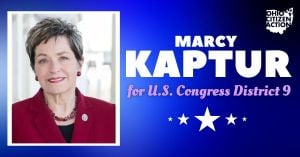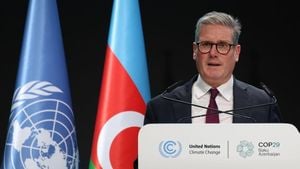The recent collapse of Germany's governing coalition marks a significant moment in the country's political history, offering insight not only on the internal dynamics of German politics but also on the broader European political climate. Chancellor Olaf Scholz's decision to fire finance minister Christian Lindner, leader of the pro-business Free Democrats (FDP), has sent shockwaves through the coalition, fundamentally altering the power dynamics within the German government.
The tension reached its peak when Scholz terminated Lindner over his refusal to abandon the debt brake, which is a constitutional measure restricting borrowing. The impasse was over funding for Ukraine, as Scholz’s government sought to expand financial support amid continuing conflict. Lindner’s dismissal effectively ended the coalition partnership with the FDP, leading analysts to call this decision akin to pulling the plug on the coalition and losing the parliamentary majority, as noted by Guy Chazan in the Financial Times.
The aftermath of this political shakeup is significant. Public opinion polls suggest the Social Democratic Party (SPD), which Scholz leads, is likely to suffer substantial losses if snap elections are held, as they are currently scheduled for February 23. Interestingly, some within the SPD are already speculating about who might replace Scholz—popular defense minister Boris Pistorius has emerged as a potential candidate. Still, party leaders seem unified, with many viewing Scholz’s move as heroic for finally ending what they deemed “a dysfunctional government riddled by ideological conflict.”
But what does this mean for Germany as it navigates through turbulent waters? Observers warn of the perilous economic consequences stemming from the coalition's instability, especially with looming threats including Donald Trump's renewed focus on imposing tariffs on imported European goods, particularly targeting Germany’s substantial automotive industry. Trump has hinted at tariffs as high as 20%, which could have devastating effects on Germany, the EU’s largest economy.
Experts highlight how the North American economic policies pose risks to Germany, especially with the economic ties running deep, as the United States remains Germany's largest trading partner. The potential for trade wars, exacerbated by Trump's tariffs, could cost Germany upwards of €180 billion during his presidency, according to the German Economic Institute.
On another front, Germany’s reliance on Russian gas and exports to China has left its economy vulnerable. The country’s longstanding “neo-mercantilist” approach, which included heavy dependence on traditional industries like automotive manufacturing, has seen it fall woefully behind on modern technological advancements. Critics point to the car industry’s slow response to the electric vehicle (EV) shift, branding this a “bad bet” for the entire country. Consequently, industrial production has dipped back to 2006 levels, and with GDP growth stagnated since 2018, many fear the impending economic atrophy.
Within the government ranks, Scholz's abrupt move could potentially enable him to reset the political discourse and regain public trust. Party insiders argue there might be advantages stemming from this turmoil, including the opportunity to present new policies and cabinet formations to address the economic woes effectively. What remains to be seen is if this coalition’s demise will spur effective leadership or lead to prolonged instability.
The approaching confidence vote scheduled for December 16 could serve as the government's last breath. Political analysts predict it will likely result in the collapse of the current governing body, pushing Germany one step closer to impending elections. With the political winds shifting rapidly, many citizens are left wondering about their country's future direction amid growing uncertainty.
Germany's situation is emblematic of broader trends impacting Western democracies where political polarization and economic stagnation have become the new norm. The public is watching closely how the SPD reacts to maintain any semblance of control and direction as the international community stands by, poised to see how this affects not just German politics, but the European Union's stability and response to global challenges.



